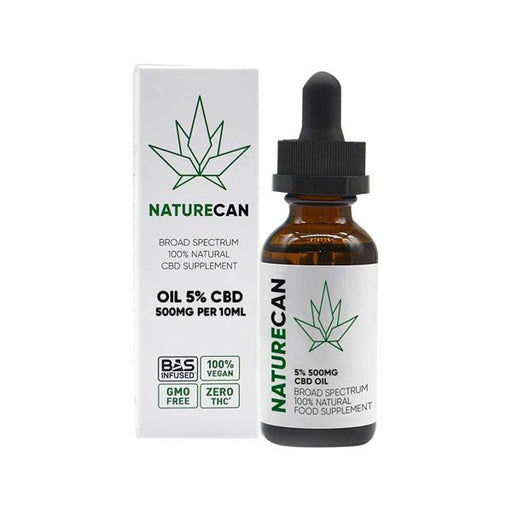

Shilajit vs Ashwagandha
Shilajit and Ashwagandha are the most popular names in the world of herbal medicine. Both of them are highly regarded and have been used for centuries in traditional medicine for their adaptogenic, anti-inflammatory, antioxidant, and numerous other properties.
When combined, these two supplements can provide even more health benefits. Let’s dive into what they really are and why they are so popular.
What is Shilajit?
Shilajit is a sticky substance found in the rocks of the Himalayas and other mountain ranges. It forms over centuries from the decomposition of plants and minerals. It has been used for thousands of years in Ayurveda, an ancient Indian system of medicine, to support overall health and well-being.
Shilajit is rich in minerals, vitamins, and antioxidants, which makes it a popular supplement for many health issues. It works by replenishing minerals in the body and supporting cellular functions, fighting fatigue and increasing your body’s overall energy levels.
What is Ashwagandha?
Ashwagandha, also known as Withania somnifera, is a herb that grows in India and parts of Africa. It is often called “Indian ginseng” because of its ability to boost strength and energy. Like Shilajit, Ashwagandha has also been used for centuries in Ayurvedic medicine, mainly as an adaptogen.
Adaptogens are natural substances that help your body cope with stress and promote balance. They work by lowering cortisol levels in the body (the stress hormone), improving mood and sleep.
Benefits of Shilajit
Boosts Energy
Shilajit has a high concentration of fulvic acid and minerals like iron, magnesium, and zinc that help support mitochondrial function. Mitochondria are a part of your cells that are responsible for producing energy. Using shilajit can make you feel more energised and less fatigued throughout the day.
Iron is also crucial for transporting oxygen in the blood, which helps improve oxygen flow to tissues and organs, keeping your body strong and energised.
Supports Immune Health
Fulvic acid and other bioactive compounds in Shilajit help neutralise free radicals, which are harmful molecules that can damage cells and tissues in your body. By reducing oxidative stress, Shilajit supports your body's natural defences, making it easier for your immune system to fight off infections.
It also contains trace minerals like selenium, which are essential for proper immune function. These minerals help support the production of immune cells and regulate inflammation, enhancing the body’s ability to defend against harmful invaders.
Improves Cognitive Function
Fulvic acid can cross the blood-brain barrier, allowing it to directly influence brain function. It can boost the growth of nerve cells, improving communication between neurons and overall cognitive function, including memory and focus.
Shilajit also contains Dibenzo-alpha-pyrones (DBPs), powerful antioxidants that protect the brain from damage. These compounds help improve memory, enhance mental clarity, and may even reduce the risk of neurodegenerative diseases like Alzheimer's by preventing the buildup of harmful proteins in the brain.
Anti-Ageing
The antioxidants in shilajit help neutralise free radicals, which cause oxidative stress and contribute to the ageing process. By reducing oxidative damage, Shilajit helps protect cells and tissues from premature ageing.
Minerals like magnesium and calcium also support skin health, improving elasticity and reducing wrinkles. Regular use of Shilajit may help slow down multiple visible signs of ageing and promote youthful-looking skin.
Benefits of Ashwagandha
Reduces Stress and Anxiety
Ashwagandha is known for its ability to reduce stress by balancing cortisol levels. Cortisol is the hormone released by the adrenal glands when you are stressed. High levels of cortisol can lead to anxiety, fatigue, and various health problems.
Ashwagandha acts as an adaptogen, with active compounds, such as withanolides, which help your body adapt to stress, maintain balance, and promote a sense of calm.
Improves Sleep
Ashwagandha’s calming effects also make it a great herb for improving sleep quality. By reducing cortisol and promoting relaxation, it can help you fall asleep faster and stay asleep longer. It helps regulate the sleep-wake cycle, which is important for maintaining a healthy sleep routine.
Boosts Immunity
Like Shilajit, Ashwagandha also has immune-boosting properties, like withanolides and alkaloids, which have been shown to stimulate the production of white blood cells. These cells are essential for defending the body against infections.
It can also help control inflammation in the body, enhancing the immune system’s response and supporting overall health.
Increases Strength and Endurance
Ashwagandha can help reduce muscle damage, improve muscle recovery, and enhance oxygen uptake during physical activity. It also helps increase the production of testosterone, the hormone responsible for building muscle mass and strength. This ultimately helps improve performance in endurance exercises and strength training.
Improves Brain Function
Ashwagandha supports the growth of new nerve cells and protects brain cells from damage. It also contains compounds that enhance the activity of acetylcholine, a neurotransmitter involved in memory and learning.
Studies have shown that Ashwagandha can improve working memory, increase reaction time, and enhance mental clarity.
When to Use Shilajit
- You Need a Natural Energy Booster
If you are feeling tired, fatigued, or low on energy, Shilajit can be a powerful way to restore your energy. It supports mitochondria, helping your body produce energy more efficiently.
- You Want to Improve Overall Wellness
Shilajit is full of essential minerals, antioxidants, and vitamins that help maintain general health. It supports immune function, promotes anti-ageing, and enhances the absorption of nutrients from your food.
- You Want to Improve Focus
Shilajit is known to support brain health and improve memory, focus, and mental clarity. If you are experiencing brain fog or just want to boost your mental performance, Shilajit’s rich content of fulvic acid and minerals can help improve brain function.
When to Use Ashwagandha
- You Need Stress and Anxiety Relief
If stress and anxiety are affecting your daily life, Ashwagandha can be an excellent option. It works by lowering and regulating cortisol levels, the hormone responsible for stress, to help calm your mind and reduce anxiety.
- You Want Better Sleep Quality
If you struggle to fall or stay asleep, Ashwagandha can help. Its calming effects, such as its ability to regulate cortisol levels and promote relaxation, can help improve your sleep quality and regulate your sleep cycle.
- Enhancing Physical Endurance and Strength
Whether you are an athlete or just someone who enjoys exercise, you can use Ashwagandha to help increase strength, reduce muscle fatigue, and enhance stamina. It can also help boost testosterone levels and improve muscle recovery, making it a great addition to your fitness regimen, especially if your aim is to enhance endurance and strength.
- Improve Mental Clarity and Focus
If you are looking to improve focus, memory, and concentration, Ashwagandha can help sharpen your brain function. It has neuroprotective properties that support cognitive health and reduce mental fog. It can also assist with managing mental clarity, especially when stress or anxiety is clouding your thinking.
Conclusion
Both Shilajit and Ashwagandha offer a wide range of health benefits. Shilajit is a mineral-rich substance that boosts energy, supports immunity, improves cognitive function, enhances nutrient absorption, and promotes anti-ageing. On the other hand, Ashwagandha is a powerful adaptogen that helps reduce stress, improve sleep, boost immunity, increase strength, and support brain function.
While they serve different purposes, both herbs complement each other and can provide a holistic approach to improving your health and well-being. If you have any health concerns, always consult a healthcare professional.
-

-
In stockOriginal price £25.00 - Original price £139.99Original price £0.00£25.00 - £139.99£25.00 - £139.99Current price £25.00
Earn 312 reward points
Orange County CBDBrought to you straight from the Sunshine State, Orange County's CBD oil combines full-spectrum, premium cannabinoids with natural terpenes to brin...
View full detailsOriginal price £25.00 - Original price £139.99Original price £0.00£25.00 - £139.99£25.00 - £139.99Current price £25.00Earn 312 reward points
-
Low stockOriginal price £19.99 - Original price £100.00Original price £0.00£19.99 - £100.00£19.99 - £100.00Current price £19.99
Earn 250 reward points
CBD by British CannabisIntroducing the new CBD Cannabis Oil from CBD by British Cannabis. This 100% Cannabis oil has been developed to be the best tasting most premium CB...
View full detailsOriginal price £19.99 - Original price £100.00Original price £0.00£19.99 - £100.00£19.99 - £100.00Current price £19.99Earn 250 reward points
-
In stockOriginal price £25.00 - Original price £25.00Original price £0.00£25.00£25.00 - £25.00Current price £25.00
Earn 312 reward points
CBD FXExperience the natural benefits of CBDfx Hemp Tincture, crafted with high-quality, pure hemp-derived CBD and MCT oil for optimum absorption and e...
View full detailsOriginal price £25.00 - Original price £25.00Original price £0.00£25.00£25.00 - £25.00Current price £25.00Earn 312 reward points
-
In stockOriginal price £19.99 - Original price £19.99Original price £0.00£19.99£19.99 - £19.99Current price £19.99
Earn 250 reward points
CBD FXExperience the natural benefits of CBDfx Hemp Tincture, crafted with high-quality, pure hemp-derived CBD and MCT oil for optimum absorption and ef...
View full detailsOriginal price £19.99 - Original price £19.99Original price £0.00£19.99£19.99 - £19.99Current price £19.99Earn 250 reward points
-
Low stockOriginal price £29.99 - Original price £149.99Original price £29.99 - Original price £149.99Original price £29.99£26.99 - £134.99£26.99 - £134.99Current price £26.99
Earn 337 reward points
Naturecan CBDBroad Spectrum 100% Natural Oil By Naturecan CBD is a high quality broad spectrum CBD oil produced from organically grown US hemp manufactured in t...
View full detailsOriginal price £29.99 - Original price £149.99Original price £29.99 - Original price £149.99Original price £29.99£26.99 - £134.99£26.99 - £134.99Current price £26.99Earn 337 reward points
Save up to 10% -
In stockOriginal price £64.99 - Original price £160.00Original price £0.00£64.99 - £160.00£64.99 - £160.00Current price £64.99
Earn 812 reward points
Supreme CBDSupreme CBD full spectrum oil provides the maximum CBD advantages and is available in three strong variants: 1500mg, 3000mg, and 6000mg. This full ...
View full detailsOriginal price £64.99 - Original price £160.00Original price £0.00£64.99 - £160.00£64.99 - £160.00Current price £64.99Earn 812 reward points




















Leave a comment